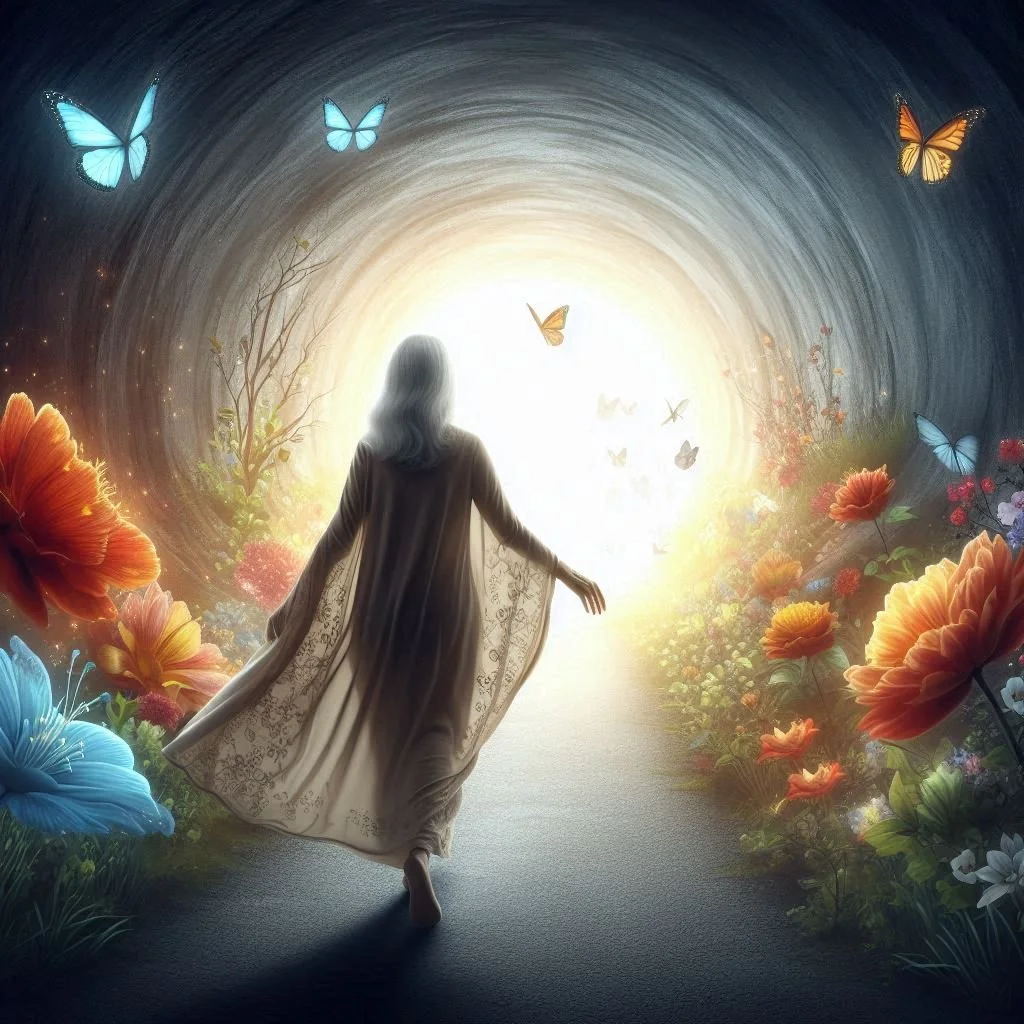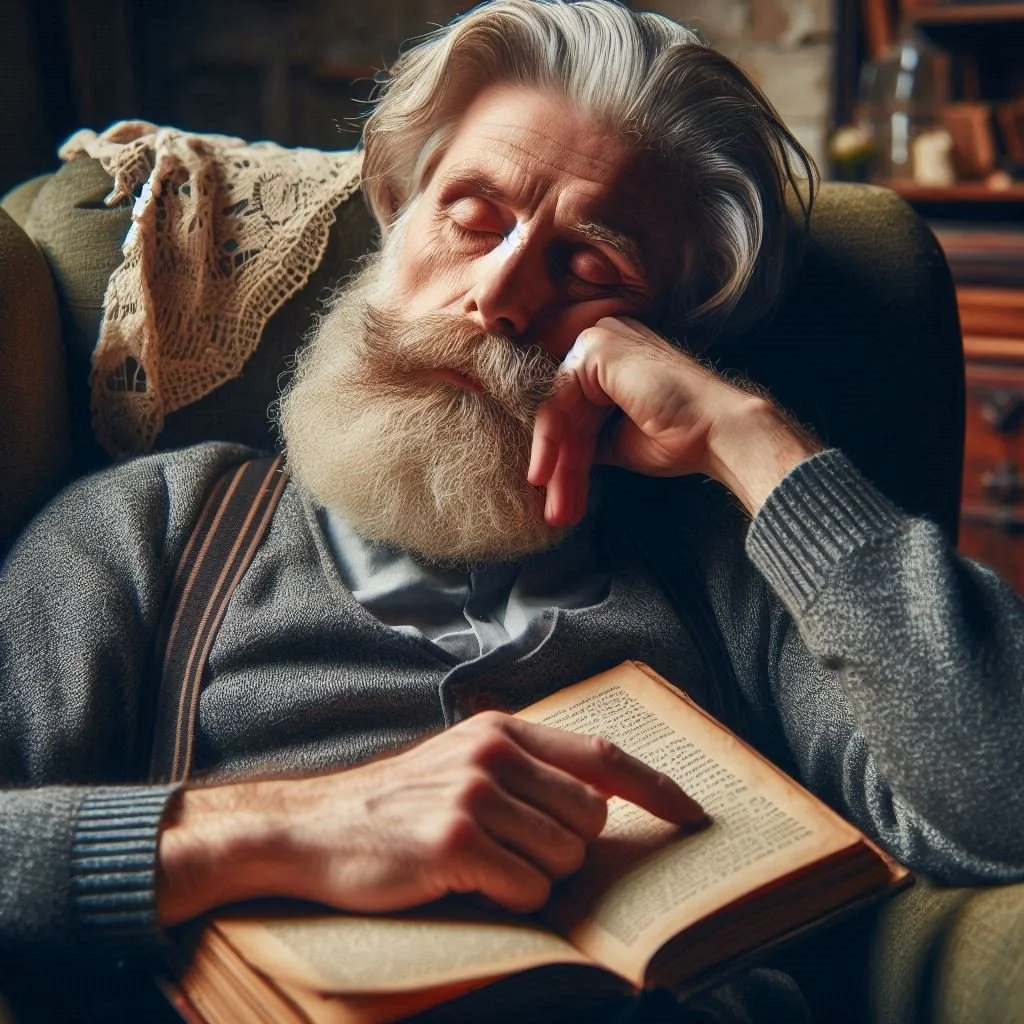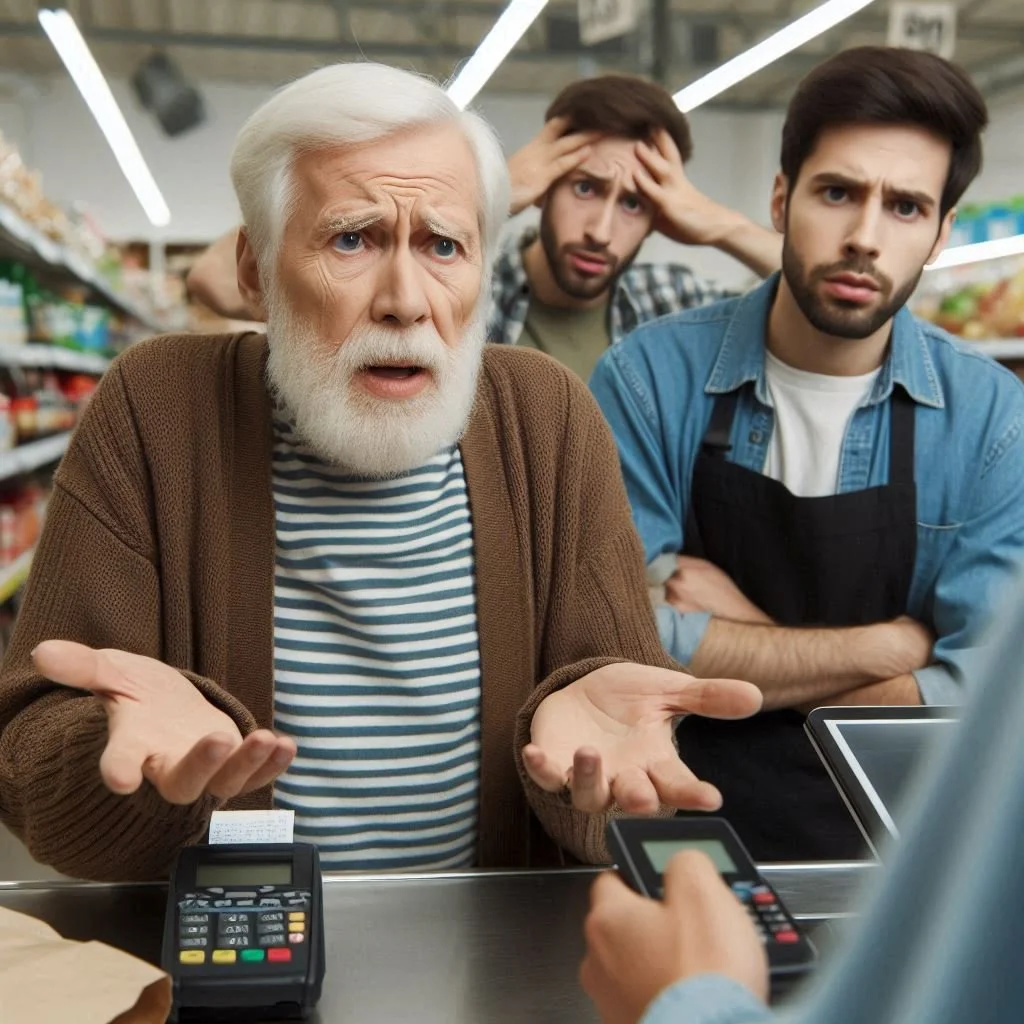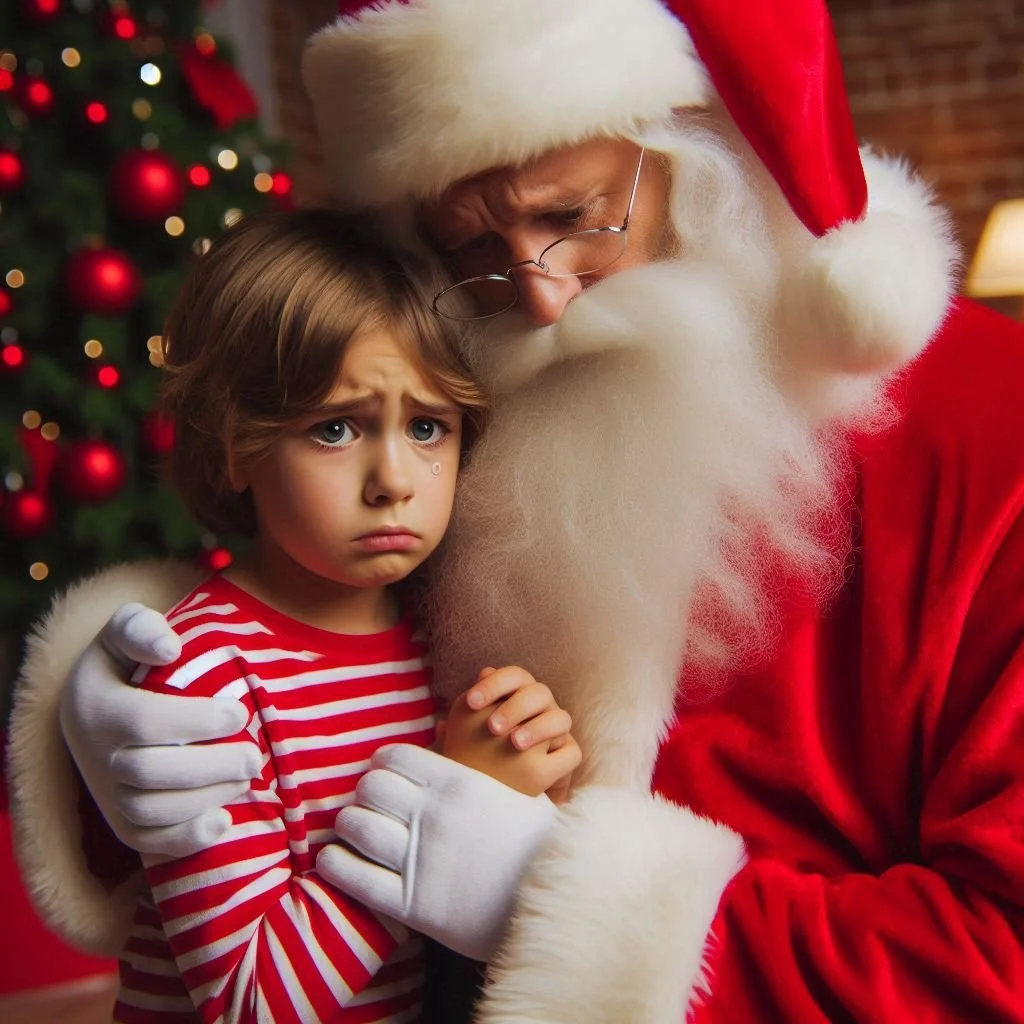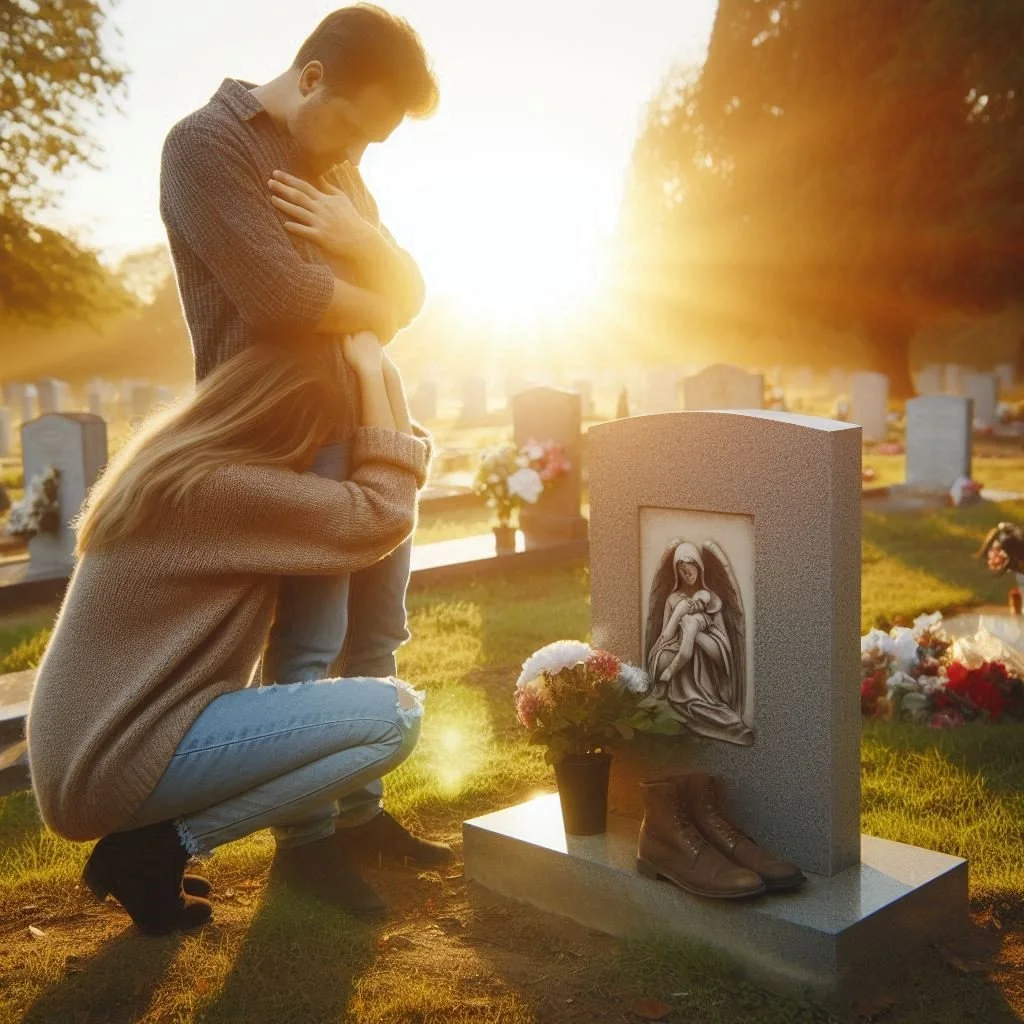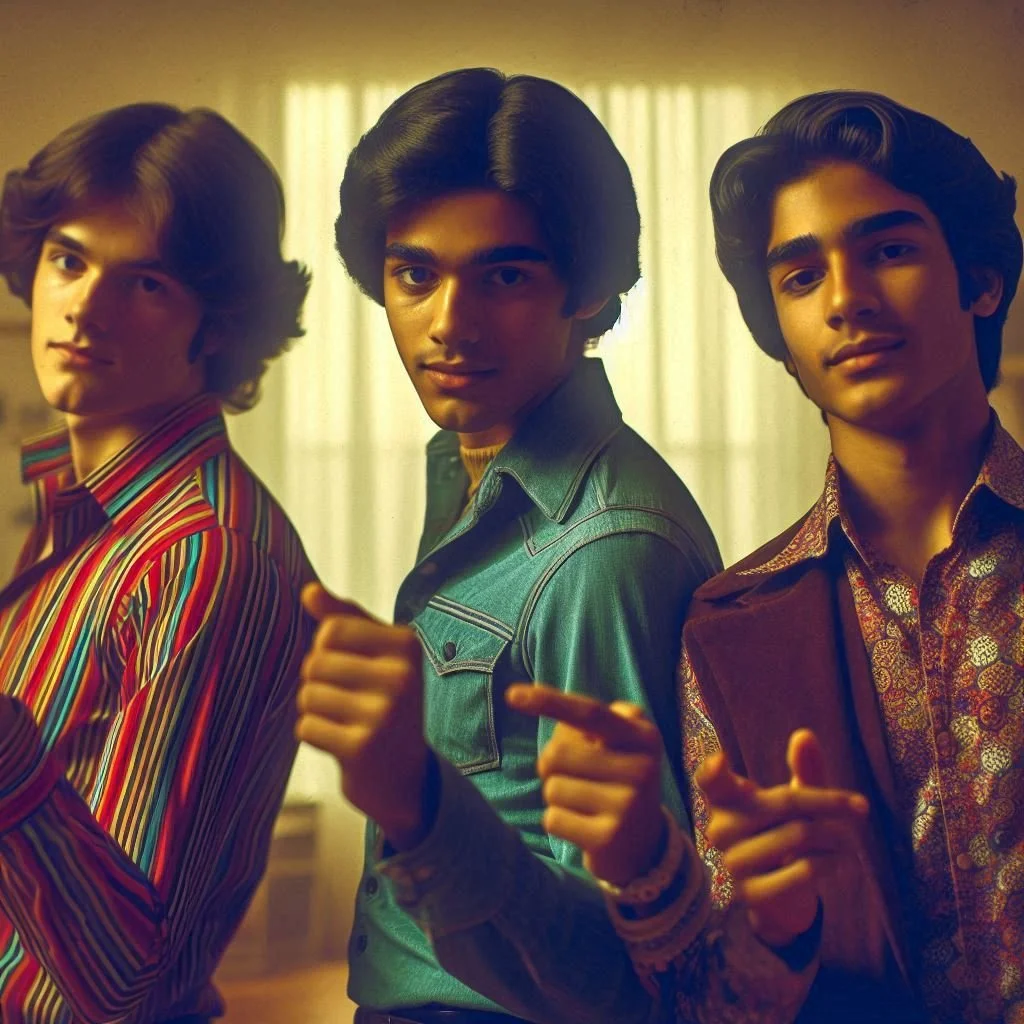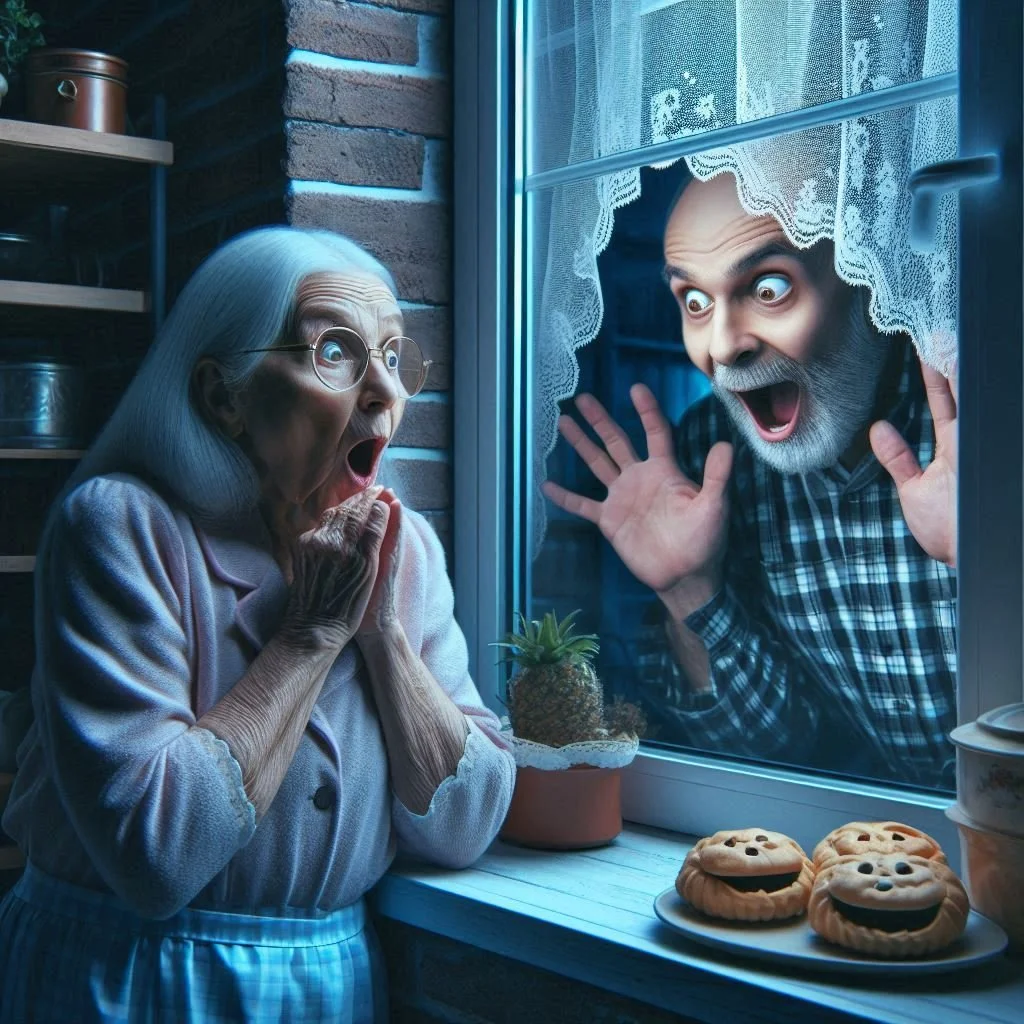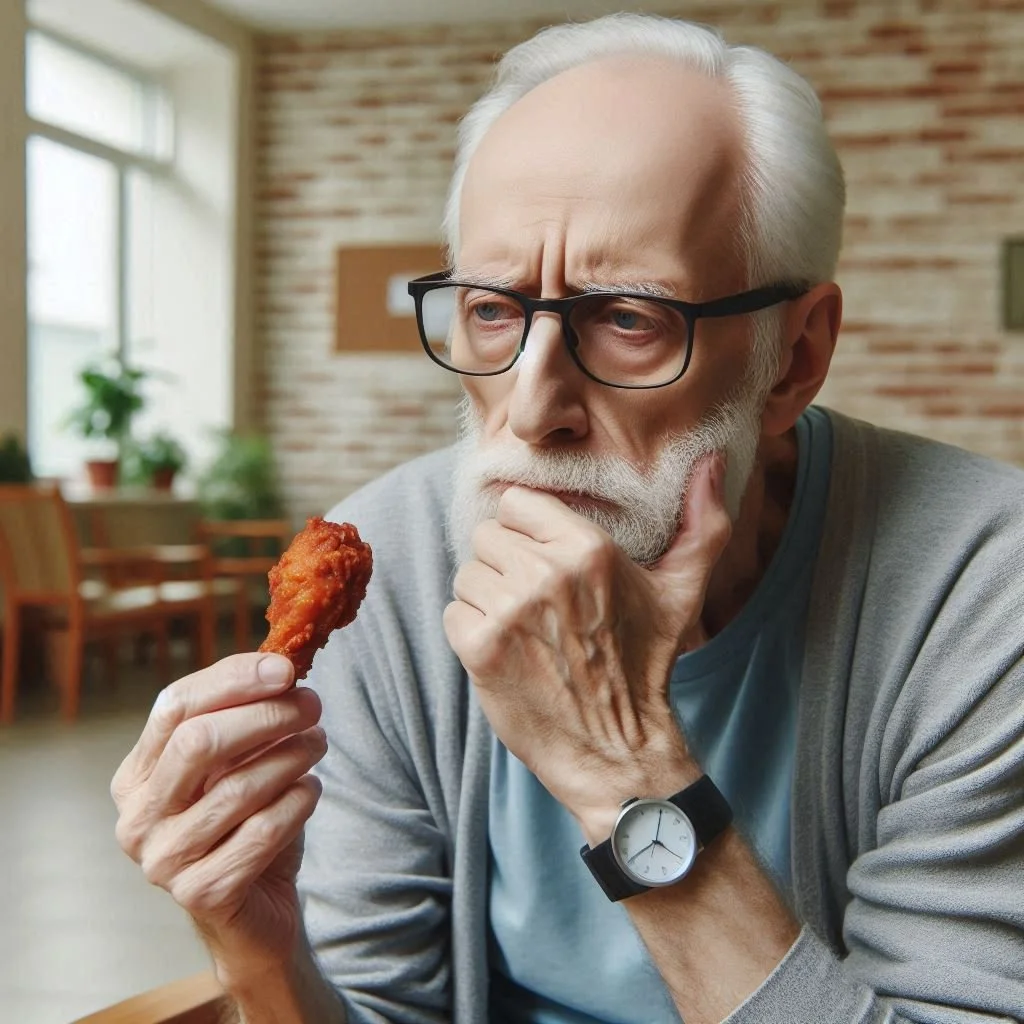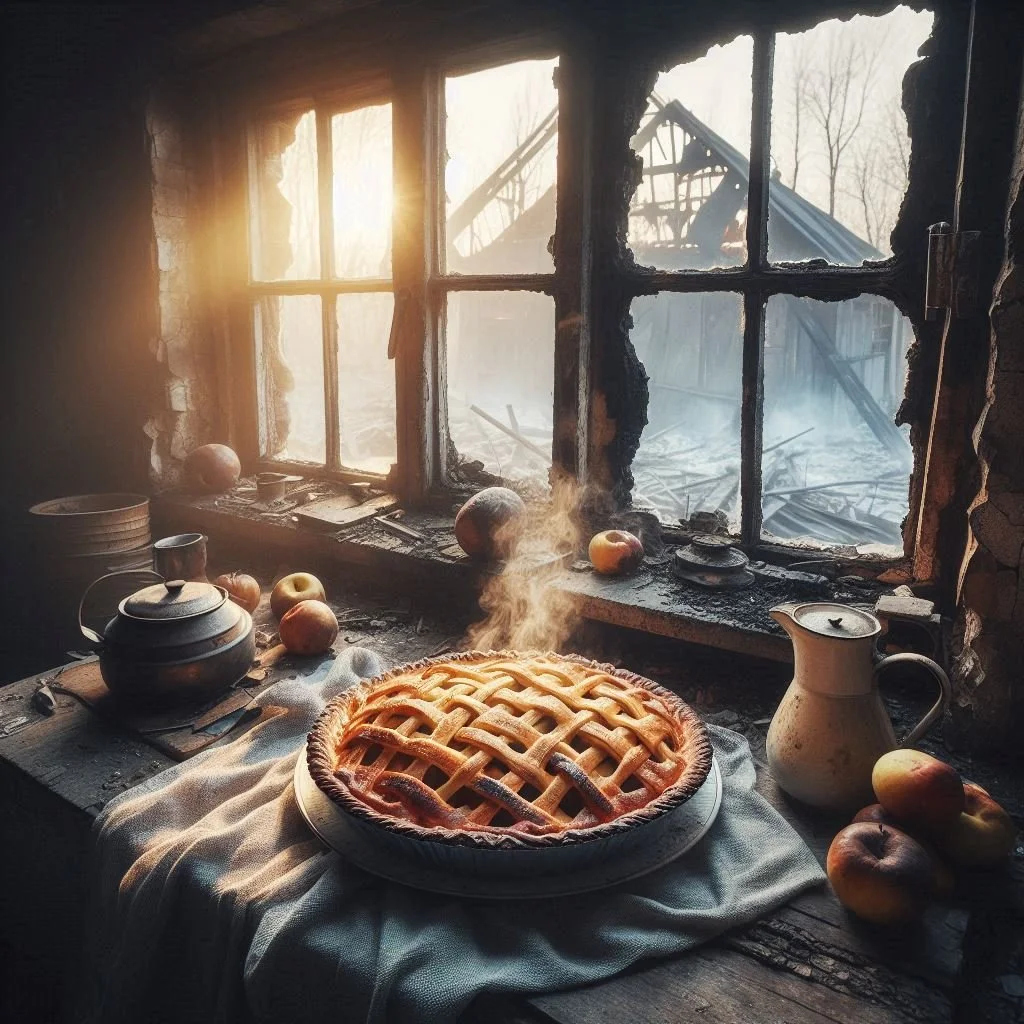Abigail
My wife, Tonya, is a nurse in a long-term care facility.
Some folks are there because their bodies are broken, others because their minds are lost. Some live their days waiting for visitors who never come. Some folks come to rehab and leave.
A few come to live there until they die, however long that might be.
Some, who know their time is imminent, come for hospice care.
But even for those folks, facing an end that could come in weeks or even days, their stories are not all sad ones. They have gone through all the stages. They’ve made all the bargains. Despite all that, there is death, still at the threshold.
Call it faith, call it what you will, but these people will greet death, not with fear, but with joyful anticipation.
Abigail (not her real name) is one such person. She was on hospice care, with a Do Not Resuscitate (DNR) order on file. When she was ready to go, she didn’t want to be dragged back into a life that was at its natural end. She was a sweet old lady. She had olive skin, brown eyes, and lips so naturally red they looked like they always had lipstick on them.
Upon meeting her for the first time, Tonya said “Abigail, you are so pretty.”
“No,” said Abigail, her brown eyes shining, “You are the pretty one.”
“No, you are,” said Tonya.
“Oh honey,” said Abigail. “You need to get your eyes checked.”
She said it so sweetly that Tonya just had to laugh.
They would go back and forth like this every time Tonya checked in on her.
One day, Tonya found Abigail in a deep sleep. Her normally luminescent skin was ashen. Her lips were pale. She tried talking to her to wake her up. She tried chest rubs. Nothing worked.
Tonya made her as comfortable as possible and left her to sleep, sure in her own faith that Abigail was going to wake up in a better place.
Hours later, Tonya checked up on her. She was amazed to find Abigail sitting up in her bed. Her color was back. Her eyes were shining. She was positively radiant.
“Abigail, you’re awake,” said Tonya, amazed.
“Honey,” said Abigail, smiling her sweet smile. “I wasn’t sleeping.”
“You weren’t?” asked Tonya.
“Oh, no,” said Abigail. “I was at the magical place.”
“The magical place?”
“It was sunny and warm,” said Abigail, looking off into space. “Everybody was so nice. They have a room for me there. And guess what?”
“What?” asked Tonya.
“Next time I go, I get to stay there,” said Abigail. “Oh, and they have a place for you, too.”
“Don’t take this the wrong way,” said Tonya. “But I hope it’s a long time before I get that room.”
They chatted for a bit. Tonya made sure Abigail was comfortable, then went about her rounds.
A few weeks later, on Christmas day, Abigail went to the magical place and didn’t come back.
Did she see what awaits her on the other side? Or was it just a dream, conjured by a subconscious mind facing the void?
We can debate the sacred texts or the peer reviewed science, but in the end, neither will shed any more light than the other. I’ve read that when any of us closes our eyes for the last time, we’ll probably see what we expect to see.
To paraphrase the bard, to believe or not to believe, that is the question. It’s also the most useless to argue. Millions die every second, but we each face the abyss alone. Nobody comes back to tell you how it is. Our ultimate end is unique to every one of us. I would not presume to tell you what you might face when you close your eyes for the last time. Your answer won’t come from the fiery pulpit or a science journal. It certainly won’t come from me. Your answer will be yours alone. All will be revealed, or nothing at all.
As for Abigail, her faith prepared a path for her paved with acceptance and peace. She died on her own terms with her dignity intact.
Faith or not, that’s an ending we can all hope for.
Read Any Good Books Lately?
I used to read a lot more.
Oh, I read now, but it's mostly Facebook posts about cats and nostalgia and politics. I look at pictures of food. I keep up with the daily adventures of people I never see. Sometimes it seems that my life is ordered around the blinking blue or green light on my phone. It flashes, OMG, I must check it. Who is responding to my own posts, and what did they say? Did they like it? I hate reality TV, but it seems like my own life has devolved into one big reality show where human interaction has been replaced by sound bite emotion and two-dimensional outrage where a picture is worth a thousand words, but utterly devoid of context.
The written word is no longer an escape from stress. These days, it seems to be a masochistic exercise where we read to be angry. We don’t spend our quiet time retreating from the madness. We swim about in a swamp of half-truths, gossip and memes. We read not to escape, but to rebut. Words have become adversaries instead of the friends they used to be.
There was a time, maybe not so long ago, when I read actual books. I would stay up until the wee hours, basking in the green glow of an old digital alarm clock with impossibly large numbers. I was delving into places fraught with danger and wonder where the hero always won, and the bad guys always got what they deserved. It was so much easier to lose myself in these imaginary realms. The first line of a wrinkled paperback was enough to transport me instantly into the jungles of a dark continent, or into the depths of outer space, or into a world of smart robots and flying cars. Anything was possible.
Let’s face it. Back then, real life wasn’t much fun for me. The step dad would rampage, and mom would be a mess. I might have had a paper due in two days that was nothing but random doodles in my notebook. The other shoe always seemed ready to drop.
But in bed with a book, none of that mattered. The house slept and there were worlds to explore.
Sadly, those all-night reading sessions are long gone. Now, I can drink two cups of coffee with a Rockstar chaser before bed and still fall into a heavy REM state thirty seconds after I open my Kindle.
More and more, though, as I turn off the TV and ignore the blinking lights on my phone, I find myself reading again. Admittedly, it's harder to suspend my disbelief. Losing myself in the story isn't as easy as reading the first line. It takes a little work.
But you know what? The magic is coming back.
As a kid, I might have found myself swinging through a dark forest with Tarzan or piloting a space ship through the cosmos. These days I’m more likely to be chuckling at the snappy dialog in an Elmore Leonard novel or imagine hearing vampires tap my window while immersed in a Stephen King book.
I might read about criminals who are sometimes good guys and good guys whose white hats are a little smudged. I get into stories about people who are flawed but do heroic things anyway. I can relate, because even though I’m not vanquishing vampires or beating up secret agents to get the super-duper secret formula, I’m still a hero in my own story.
I get up in the morning, even when I don’t want to. When I’m tired, I still go to the gym. Even on a day when I can’t seem to get a win, I can still be happy for my friend who gets an unexpected check in the mail. These are all small victories, for sure, and maybe not as valiant as slaying dragons, but they sometimes require the same force of will and intestinal fortitude to achieve them.
Back in the day, I read to escape. Now, I read to connect with what it means to be human.
When I was a kid, I didn’t know that I could be afraid and be a hero anyway. As a grownup, I know that concept is the basis for any good story, even my own.
And that, my friends, is where the true magic lies.
Cartoons and Cereal
Growing up in the early 70’s, we didn’t have a lot.
We wouldn’t have been able to tell you that. We thought everybody got their cheese in blocks. We didn’t starve, our toes didn’t poke through our shoes and we still got to watch cartoons on Saturday. Looking back, though, I remember eating a lot of things that counted pork and beans and cheese as main ingredients.
One day, we were at the grocery store with mom. That didn’t usually happen, because there were 5 of us, two of us barely walking, and of the three older ones, only one could be counted on to listen. There was Leisa, me, Garth, then Jerry and Julie. Julie, the youngest, got to ride in the cart, her little chubby legs dangling. Leisa, the oldest and mom’s right hand, helped ride herd on the rest of us. Jerry spent half the time on mom’s hip and the other half complaining that he wasn’t. Garth, the third child, all hands and master of the brow beating repetitive appeals— “Mom, can I…?” and “Why not….?” being recurring themes---served as advance scout, running around in front of the wagon train eyeballing all the nonnutritive items he thought we should have.
I remained above the fray playing the disinterested observer. Oh, I wanted the same stuff Garth did, but experience told me that my interests were better served letting Garth do what he did best---agitate. Sometimes it worked, but when it didn’t, and mom had enough, Garth suffered the brunt of her wrath. It was a great system.
Mom was usually on edge by the time we arrived at the register. There would be a running commentary.
“Nice try,” mom would say as she emptied the cart. “Uh uh. No. How many times do I have to tell you guys? No. Not this. Nope. Really?” To the clerk she said, “Can we put this stuff aside?”
To us, she would say “This is why I leave you guys at home.”
One day, though, mom surprised us all by allowing one item to travel through the checkout line. We all stared as the cereal box adorned with the cheeky elf disappeared into a bag. Even the clerk seemed surprised as she rang up the rest of the groceries.
Now a whole new set of problems arose. Like, there were 5 of us and one box of sugary cereal. Leisa really didn’t care, and Julie was happy with graham crackers. That left me and Garth and Jerry. We looked sideways at each other through slitted eyelids.
I was going to fall back on my usual game plan. The next day was Saturday, and I probably wasn’t getting up before at least 9 AM. Garth and Jerry would certainly be into that box before then, leaving me with nothing but marshmallow dust and regrets. Just before bed, I would sneak into the kitchen, pour myself a bowl and hide it.
It always worked. Next morning, the two miscreants would be sitting in the den in front of the cartoons and behind their empty bowls. I would walk in with a full cereal bowl and plop on the couch. They would look at me openmouthed. Priceless.
Except this Saturday went nothing like that. I went to bed smug, I woke up smug. I wore my smug expression to the bottom of the stairs, where Garth was waiting for me.
“Did you save me any?” I asked him.
“No, they beat us both to it,” said Garth.
“You mean, they beat you to it,” I said smugly.
There was Jerry at the table, the cereal dumped out in front of him. He was happily picking out the marshmallows. Considering that his fingers were up his nose half the time, that cereal was now dead to us.
Fine. I still had my bowl. Except, what was this?
Leisa was eating a big bowl of cereal right next to Jerry.
“Look what I found,” Leisa said.
“That was mine, “I cried.
“I didn’t see your name on it,” said Leisa.
She was a bit smug, I thought.
It was all moot because mom’s door opened on creaky hinges. She surveyed the mess through bleary eyes.
“This is why I don’t buy this crap,” said mom.
It would be months before we saw another box of the good stuff.
At least we still had our cartoons.
Moments, Big and Small
Life is full of moments, big and small. The big ones erupt in a tangle of wars and natural disasters, of assassinations and untimely deaths, often defining whole generations. Where were you when the Twin Towers fell? Do you remember what you were doing the day Kennedy was shot?
But there are smaller moments that are fleeting and easily missed. They come to us quietly on padded feet and whisper in our ears of things that make us real. Look, the voice says. Remember.
Your grandpa is telling a story. Your kids are building a fort in the living room. Your mother is dying, and she pulls you in close to whisper that she loves you.
Wars are raging on the TV and in your Twitter feed, but other things matter, too, and they are happening right in front of you.
That small voice still whispers, remember.
We don’t listen enough, do we? Because those small moments are quieter, maybe a little ordinary. They don’t scream at us like endless news cycles of war and politics. They don’t jerk us around from one five-minute drama to the next. They are calm and serene and only demand our attention for a second or two.
But oh, how those seconds define us.
I’m talking about everyday things, like when you sit in a rocking chair holding a bottle and looking into your baby’s eyes, and she’s taking forever to finish, and you don’t mind a bit.
Then there is that exquisite stillness in the early morning when you wake up and can’t go back to sleep. You put on your slippers and tiptoe out to the back porch and sit with your steaming coffee cup as daylight works its way over the fence. The world is quiet and cozy and full of promise and your coffee never tastes better.
Or when you get off work and your kids play on the floor while you put your feet up and watch the news, and occasionally, they look up at you like you are the center of the universe and your mere presence means that everything is right with the world.
Or what about when you get back from a two-year tour overseas and your plane is descending and you’re looking at the patchwork fields and the houses coming into focus and then your mom meets you at the gate and hugs you tighter than she ever has. She’s crying and you’re crying, and it’s what you’ve been dreaming of since that damn plane took you away so long ago, and suddenly it’s not a dream anymore---you are home.
Think about the first time you looked at your granddaughter’s perfectly beautiful face for the first time and saw your mother’s eyes.
But there are other moments, like that quiet time at the end of a graveside service when everybody is looking at the ground and a bird chirps in the distance and the sun is shining just over the tops of the trees, and you can smell the grass and the freshly turned soil, and you realize right then that some moments will never happen again.
Big moments are significant only within the context of these small ones. That’s why my grandpa’s stories of the Great War began and ended with the loss of his little brother, my Uncle Lynn, who died in Okinawa. That’s why my mother’s story of the day Kennedy was shot always ended with her crying by the TV while she rocked me in my little bassinet.
No matter how dire the calamity, it will always serve as a backdrop to the play of life going on in front of it. So, remember well that hug, that kiss, or that smile. Remember the laughter of your children or holding your wife’s hand while you watch TV.
The small things, the things that whisper to us in the stillness of a moment, are written in our hearts. You won’t find them recorded on a Wiki page or a Facebook post.
But 30 years from now, your grandchild might be sitting on her back porch sipping her coffee and that small voice will murmur to her of small moments long gone of her grandpa’s hug or her mother’s smile, and she will be reminded once again of who she is.
And that is a moment that matters.
The Next Guy In Line
We will all be old someday. These folks we see shuffling about on their canes and walkers, these people with their thin hair and wide suspenders who speak their mind and hold up lines, they will be us. I see you standing there on your strong legs rolling your eyes at the old gent who is slow to use his debit card at the grocery store.
We’ve all been there.
You’ve got three things in your hand. You scanned the queues, looking for the register with the fewest people and the fewest items on the belt. Jackpot! There’s that old guy standing in front of the cashier, debit card in hand. His stuff is already bagged, and he’s ready to pay. There’s just one problem.
He’s confused. He’s peering at the card machine over his glasses. Slide? Insert? Tap? He feels like an idiot. He’s pushed the wrong button twice, causing the clerk to cancel everything and start over. He’s glanced at the line forming behind him, at impatient people with full carts. Back in the day, he might have been one of those guys who could take apart a car and put it back together blindfolded, yet this little machine confuses him, like a lot of things do these days.
As you stand there, with your lunch hour ticking away, tapping your foot and checking your watch, you might be thinking, holy crap, get a move on! Slide the card, push the buttons! You might have all day, but the rest of us don’t. You might even be tempted to open your mouth and say something.
But then you look at him, with his thinning hair combed back, at his baggy pants and suspenders, at his cane leaning obediently against the counter. You see the sadness in his eyes as he tries in vain to hold on to whatever dignity he has left.
You take a deep breath.
Maybe this old man worked his behind off his whole life, raising kids and paying off a mortgage. Maybe he lost his innocence on a bloody battlefield in Korea or Vietnam. Maybe his wife passed a few years ago and his kids are a thousand miles away and he feels like he’s already given everything he had to give and now he’s just marking time and hoping he gets to die in his own bed.
Old people were young people like you. And because everything truly has been done before, they worried about the same things you worry about now: jobs, kids, car payments, and the light bill—normal things that young people in the prime of their lives deal with. The seasons spin by in a blur of cold winters and lazy summers. Diapers give way to baby steps, little league and driver’s licenses, and before you know it, graduations. How does it all go by so fast?
Remember when you were a kid and you went to an old aunt’s house and looked at all the ceramic whatevers and the afghans and the cheap landscape paintings hanging on the walls behind the furniture and you thought, who could live like this? Of course, you were 12 and had no idea that to your old aunt this house was more than a home—it was a safe harbor, a refuge, a place where the dated furniture and decor was a calming reminder of bygone days when the world seemed like a much less frightening place.
One day you might be standing at a cash register with a piece of plastic in your hand and the line building behind you and the clerk giving you a dirty look while you fumble with the keypad, and suddenly all of the wonderful things you did in your life, the wars you fought, the children you raised, the lives you touched, all of that, is reduced to this one horrifying, embarrassing moment where none of that matters and you are just another bumbling old person holding up the line.
Wouldn’t it be something if, after that deep breath, you smiled instead of grimaced and said “Take your time, sir. We’re in no hurry.”
Such simple words, and kind, but they acknowledge the shared destiny of all of us lucky enough to reach old age.
Turns out, you weren’t in that much of a hurry after all.
Bringing Santa Back
My childhood wasn’t the greatest.
I’m not whining about it—things could have been a lot worse. I was luckier than most children living in a dysfunctional family. I had folks in my life who showed me that things weren’t supposed to be like that and that I could reasonably expect better. For a few months every summer, we went to grandpa’s farm and lived like kids and not refugees.
Life at the farm was lazy summer days filled with aunts and uncles and cousins and friends and lemonade and tire swings. The smell of fresh cut hay permeated the air. Cows bellowed. Insects buzzed as the adults sat on the porch and swapped stories. It was another world.
Grandpa was not drunk or angry. He was quick to smile and quicker to hug. He treated grandma with respect. I remember climbing out of bed once and padding into the dining room to find them talking quietly at the kitchen table over steaming coffee mugs. Dust motes danced in the morning sun as it’s rays diffused lazily through the kitchen window, bathing them both in a soft gossamer haze.
It was magical, and I never wanted it to end.
To soon, though, we were back home where darkness reigned, and dread returned.
There was no such thing as peace there, only periods of relative calm. Bad things were going to happen. We didn’t know when, or how, but it was a given that at some moment there would be a mushroom cloud of violence and pointless rage that would burst over our household like a nuclear bomb, the effects of which, like radiation, would be with us forever.
So, how does a child cope with that horrific lack of peace and sanctuary, the two most important things after sustenance and shelter? I’ll tell you how they do it. Defenses are mobilized. Walls come up. It doesn’t matter where the assault originates: sexual abuse, alcoholism, angry words, or violence—whatever. Little ones have limited resources available to them for defense. Often, retreat is the only option. They must find that small place within themselves that offers at least limited protection from the insanity that roils around them.
And that’s the real tragedy, isn’t it? This time of natural wonder and endearing credulity, when Santa still readies his sleigh, is forever blackened with the reality of broken adults fighting their endless battles on the fields of their own shattered childhoods, with no thought whatsoever of the collateral damage they leave behind.
Who bears ultimate responsibility for that mindless destruction of innocence? Do we blame the alcoholic step father, himself beaten and locked in dark attics, or do we accuse the mother, belittled and abused, who’s definition of self forever revolved around the redemption of everyone but her? How many past lives must we examine? To what generation must we point our trembling finger to find the monstrous culprit who began this insanity?
In our search we will find no villain upon whom we can lay this loathsome cross, because we have all been victimized. That isn’t to say that broken people are not responsible for their own actions, be it as perpetrator or blind witness, but the strength needed to hold them perpetually accountable is beyond our endurance and ultimately self-destructive.
No, true deliverance from this evil lies not in assigning blame to someone else, but in removing it from ourselves, because that is where the true darkness lies—it always has. We did not ask for these injustices, but somehow, we became the slaughtered lamb from which the sins of our fathers were bled in sacrifice as penance for their own lost innocence.
Regardless, it is we who must forgive, because it we who must be saved. Let others be responsible for their own salvation. As a child, your destiny was not yours to command. As an adult, your future is your own, to guide as you will.
Let it go. Let it be. Be free.
It’s easier said than done, to be sure. The work is hard, and the road is long.
I’m over 40 years into it. It’s only in the last 10 years that I have begun to realize that sense of inner peace I was denied as a child.
But it is sweet.
Light Wins
I raise my eyes heavenward and pray so hard that my heart must surely burst from my chest. Cancer, again, and yet again, tramples uninvited through meadows otherwise serene, rending and tearing families apart in great red chunks, leaving the grass so recently glistening with sunshine and promise flattened and bloody and utterly bereft of hope. Silence greets my cries. Tomorrow comes and with it, the same darkness.
They say that life isn't fair. Ah, this nebulous they, who speak with such authority on all things life. Well, and this time, they are right. Nothing is promised. There are no guarantees. But still. Why the children? Must they suffer, with their bald little heads covered in scarves, shaking and crying “Mommy, it hurts!” loudly at first, then quietly, and then, not at all? Must parents, with their eyes shut tight, their teeth clenched, their hearts broken and hollow, scream at an uncaring and relentless universe until their throats bleed? They rage and they cry and hold their babies tight and in the end it matters not at all, because the universe doesn't care, and what it has taken, it will keep.
I have friends who are afflicted. I have friends whose children are afflicted. It's horrendous. It's mind numbing. How much can a body take? There seems no rhyme or reason. Hey, it's the third go around! Didn't we have this beat last time? But just when junior starts to get some color back in his cheeks, he starts puking again. So back to the hospital you go.
I remember the first time I faced that horrible disease. I had been in England for almost two years. I got word that my grandma was sick. Cancer, they said. The Air Force gave me a humanitarian transfer so that I could be with her. Her doctor had to send paperwork detailing the diagnosis as well as the prognosis. There was a lot of medical jargon, but boiled down, she only had months to live. Months.
I got back home and went upstairs. There was grandma on her bed, emaciated and tired. Her cheekbones stood out and her eyes were vacant and hollow, seeming to stare at nothing and everything. When she saw me, her face lit up and her eyes focused and brightened. Whatever strength she had left she used it to reach for me.
“There’s my grandson,” said my grandma.
That was my first concrete evidence that the universe was not a fair place. Not at all.
Mothers, fathers, grandparents, hell, even the family dog, cancer doesn't give a rat’s ass. We're all grist for the mill, baby, and it doesn't matter who you are or who loves you or who will miss you when you go. I wish I could offer some hope, but the Hallmark platitudes escape me. There is no clever rhyme or sacred text that will kiss this boo boo and make it all better.
I must ask; does it get any better? That's the ultimate horror of it all. Life endures, and the survivors go on, but only because they have no choice. The rage and pain, the ache of loss, it never goes away. It recedes. It gets manageable. It's always there, though, just under the surface, ever ready to pounce without notice and shred any peace you might have salvaged from the horror of your loss.
Then again, are we completely without hope? I have lost, as you have, and everyone else. Haven't we all watched loved ones ravaged by cancer? Haven't we all lived through those long dark nights where the only sound was the ticking of the clock and the ragged breathing of a loved one sleeping in a place that is neither life or death? We have, and here we are.
Ultimately, the sun will light the darkness. We will find that despite death, happiness eventually prevails, if we let it. Our pain might consume us for a time, but in the end, all of those who go before us, tragically or otherwise, would not want us to be sad. If they were able, they would gently touch our tear stained faces and say, “Live for me, and be happy.”
And so, we do. We live. And eventually, the sun will warm us again.
The Last Dance
I remember when I was a teenager in the 70’s. It was 1978 and I was a self-conscious 14-year-old. Who wasn’t at that age? My mother tried to get me out of my shell.
“Just be you,” my Mom would say.
Apparently, I had all these wonderful attributes that would explode like a supernova if I would just be me. Trouble was, “me” was a constantly evolving work in progress.
So, what was Mom’s great idea to get me out of my shell? Disco dance classes.
Yes, you read that right. Disco. If there was ever a dance craze that catered to self-indulgence and pretension, disco was it.
Mom had arranged for my brother, Garth, and his friend Marvin, to attend the classes with me. Somehow, she must have forgotten that Garth and Marvin’s sole purpose in life was to make each other crack up.
We found ourselves sitting with a small group on metal chairs. The woman who greeted us spoke.
“Hello, class, I’m Jan,” she said. “This is a beginner’s class, so tonight we’re just going to learn a few basic steps.”
I glanced at the guys. So far, so good. They were looking straight ahead, paying attention. Jan continued.
“But first,” said Jan, “Jeff and Maude here are going to do a little routine for us, to sort of introduce you all to what disco is all about.”
Uh oh.
The pair stood, Maude in her long skirt guaranteed to flare at every spin, Jeff in his white zip up boots with bell bottom pants, paired with a white shirt and stylish corduroy vest. I looked at the guys—still behaving. Jan put a record on – “The Hustle.” The dancing began.
I saw Garth look sideways at Marv.
“Don’t you do it,” I whispered.
“What?” said Garth, all indignant—the picture of innocence.
I looked back to catch Jan looking at the three of us, eyebrows furrowed. I turned my attention back to the dancers, stone faced. Garth and I were veterans at this sort of thing, having spent many a Sunday sitting in the pew next to Grandma, who brooked no funny business at church. The consequences of giggling were immediate and dire.
Mercifully, the dance ended. Jocularity had been kept at bay.
“You two,” said Jan, pointing at Garth and Marvin. “Come up here, please.”
This was not good at all.
“You boys are going to help me demonstrate a basic step,” said Jan. Garth and Marv looked at each other, eyebrows raised—a bad sign.
Jan demonstrated something she called “a funky walk.” She sashayed a few feet, then did a hip shake.
“See,” Jan said. “Simple.”
Right. The thought of Garth and Marv doing funky anything was almost too much to bear—I snorted, then faked a cough.
“Sorry,” I said in response to Jan’s scowl. “Allergies.”
Jan put another record on— “Brick House,” by the Commodores. She pointed at Marvin. “You first,” she said.
Marvin stood.
Events at that point took on the slow-motion inevitability of a car accident.
Jan stood, head cocked, listening for just the right moment. It came.
“Three funky walks!” Jan yelled.
Marvin took a few halting steps, rubber legged, then did this thing where his knees went one way and his butt went another. Then he did a pirouette, with jazz hands.
It looked nothing like what Jan just did.
The dam burst. Garth fell on the dance floor as if poleaxed, laughing uncontrollably. I howled in my chair, holding my stomach. Marvin looked perplexed, as if wondering what he did wrong—which of course made everything worse.
The record needle scraped painfully across the vinyl with a sound like a rusty zipper—Jan had had enough. “Get out!” she hissed.
Our disco career was over. Mom never said anything about it—I can only hope she got her money back. As for myself, I didn’t leave my one and only disco dance class suddenly knowing how to be me. But for one shining moment, I laughed my butt off, caring not a whit about the consequences or for what anybody thought. It's in those unplanned moments of explosive mirth that the mask drops off and we are truly ourselves.
It didn't make me suave or cool, but at least Mom got what she wanted, if only for a moment.
Who’s Afraid of Uncle Wally?
As a child, I remember summers at my Grandparent’s farm in Northern California. I remember thudding sprinklers, insects at dusk, and the smell of newly baled hay. It was a place of refuge for us kids. I don’t remember thinking back then that I was safer there, but I knew I was happier.
Our days would be filled with war games with wooden guns. The cows would chew their cud and watch us creep through the barn. Somebody would yell “bang!” and somebody else would die a horrible, stomach clutching, writhing death, and the cows would continue to chew without a hint of interest or sympathy. Sometimes we would play hide and seek, and sometimes we would test our bravery by jumping out of the hayloft into an old rusty trailer that sat just below. Occasionally we would roughhouse in the living room until Grandma told us to get back outside before something broke.
At night we would lose ourselves in sun dried sheets and heavy homemade quilts. Grandma Leva would kiss each one of us before tucking us in.
We would wake up late in the morning to the smell of buttermilk pancakes on the griddle, pancakes that didn’t come from a box. Grandma made maple syrup from maple extract, boiling it on the stove.
“Come on down or I’m going to throw it out,” Grandma would say quietly at the foot of the stairs. She never raised her voice, even when waking us. We never thought she would throw breakfast to the chickens, but we never tested her either.
Loved ones were always in and out of Grandpa’s farmhouse. Great aunts and uncles would oftentimes be seated around the big kitchen table, speaking quietly and drinking coffee. They would laugh with the familiarity of years. Uncle Wally would magically make coins appear from behind our ears, then regale us with the same ridiculous stories he had been telling since we were old enough to speak. We listened raptly and laughed like we had never heard them before, and it was wonderful.
“You’re getting them all riled up,” Grandma would say with a smile, shooing us to bed.
One summer night we kids were having a hard time going to sleep after the lights were turned out. Earlier we had been sitting out in the living room in our jammies listening to the aunts and uncles talk. Now we lay snug in our beds while Grandma stood at the door, her hand poised over the light switch.
“There’s nothing in the dark that wasn’t there in the light,” said Grandma softly.
“But Grandma,” we cried. “It’s scary in the dark.”
Grandma wasn’t having a bit of it.
“Don’t be silly,” she said, and out went the light.
She hadn’t gone 5 steps down the long hallway before our cries brought her back. The light came on again.
“Now kids, this really is silly,” said Grandma through tight lips and furrowed brows.
Now at this point most of us were more than willing to take our chances with whatever creatures we imagined lurking in the dark than with a very real and irritated Granny.
“But Grandma,” said Garth, “Why can’t we just have the hall light on?”
Good old Garth, the middle child, the constant agitator up and down both levels of the sibling food chain. He wasn’t two weeks removed from his now infamous cartwheel through Grandma’s prized china cabinet, and here he was back talking her. That must have been one hell of a monster residing under his bed.
“I’m going to show you kids once and for all,” said Grandma, eyeballing Garth, “that there is absolutely nothing to be afraid of.” Striding purposefully to the window, she peered out, her face practically touching the glass. “See, nothing to be afraid….” And then she screamed.
Outside, with his nose smashed up against the glass, was Uncle Wally, grinning evilly. He had snuck away and had been crouching under the bedroom window, listening to the whole exchange. His timing was perfect.
Grandma collected herself and stalked out of the bedroom, hitting the lights as she went. We went to sleep without another peep because now we knew for sure what lurked in the shadows when the lights went out—Uncle Wally.
And who was afraid of Uncle Wally?
My Neighbor
In this age of frothing at the mouth jingoism and love it or leave it nationalism, it’s a little hard sometimes to figure out what it means to be an American. Some in the media would have us believe that there are clearly defined lines that separate “real Americans” from everybody else.
What you believe. What you wear. Where you came from. The color of your skin. For all the wonderful things that America represents, these things have always been cudgels used to beat the “others” and keep them in their place.
Just who are these “others?”
See, that’s the thing. The definition is always changing---Blacks, Jews, Catholics, Irish, Natives. Who is accepted and who is not? Who are we afraid of today?
These last few years, it’s been disheartening and not a little frightening, to be an American.
There’s hope, though, and it lives right next door.
He’s my neighbor, Roy.
On first meeting him, he can be a little intimidating. His graying beard is bushy and unkempt. He’s gruff. He’s tattooed.
And boy, he loves his guns and his Harley.
He’s got a history, though, just like the rest of us. That right there puts us on equal footing right away.
He’s a vet. He jumped out of helicopters in South America in the 80’s. Technically we weren’t supposed to be there, but there he was. His body bears the scars. After multiple debilitating surgeries to shore up bones weakened and destroyed by years of training and combat, he’ll set off metal detectors for the rest of his life.
He’s told me some of the stories of his time down there.
There was the time one of the young men in his squad shot himself in the leg while lying in his sleeping bag, thinking the injury would send him home. See, that young man was afraid. He was homesick. He faced death every day. Maybe he didn’t really know if it was all worth it. Did our grandfathers in the greatest generation feel the same way? Or was the threat of Hitler and the Axis and the Japanese in the Pacific enough motivation to face the horrors of Guadalcanal and Normandy?
Roy says he remembered hearing horrible screams.
“He bled to death,” Roy told me.
He was matter of fact, because it’s what happened. But the memory of it is one of the many reasons my friend suffers from PTSD these days.
Another time, Roy told me about seeing pallets wrapped in dark plastic out on the flight line. Curious, he sliced one open. White powder spilled out.
“We were down there with the Cubans and the Russians shooting at each other in the woods for that crap,” said Roy with a grin. “The war on drugs. Uncle Sam was making his money.”
He didn’t really think it was funny, getting used like that, but sometimes speaking the unabashed truth of a thing makes you smile and shake your head. Stand up comedians have been making a living at it since forever.
Even with that, Roy is not bitter about his service.
He loved his country and his flag enough to bleed and suffer for it.
His commitment is as strong today as it was back then. He’s president of the local flag society. They get up early and post flags all over town to commemorate holidays like the 4th of July and Veteran’s Day.
It’s not just for holidays, either. Recently, they displayed the flags to honor a deceased vet on his way to his final resting place in the buttes outside of town.
Me and Roy, we talk over the fence and in our front yards. We discuss the news of the day. We debate the follies of modern politics.
Like most Americans, we agree on the important things. Things like truth, and honor.
Things like brotherhood.
On other things, we are far apart. But we don’t let our disagreements define our relationship to one another. We can look each other in the eye and speak our individual truths without malice or fear of estrangement.
That’s friendship. That’s America.
One more thing.
Roy will always give you the proverbial shirt off his back, no matter who you voted for.
And that, my friends, is a real American.
Tastes Like Chicken
II remember when I was a young man. I washed dishes in a rest home in Canon City, Colorado back in the late 70's. I was 16 years old. I used to watch the old folks sometimes, sitting there on a sofa or a dining chair, staring into space. Some of them seemed afraid. Some of them seemed unsure of what was going on around them. Some of them looked as if they didn't care at all.
One night, I remember asking an old fella how he liked the food.
“It all tastes the same after a while,” he said with a chuckle.
I’m 16, and I’m thinking, is that what happens when you get old? Does the spice seep out of your life? Do babies stop crying? Does everything just sort of run together until life has no meaning, and then you just…die? These things didn’t take up space in my kid brain for long. I mean, I looked forward to getting older, but anything beyond 19 or 20 was just a haze, with no plans more concrete than going to bed when I wanted and eating ice cream for supper. This old man in front of me, with his ill-fitting clothes and faded eyes, might as well have been an alien from the Star Wars cantina scene.
I would never be him.
That was 40 years ago. Yeah, I know, I can hardly believe it either. I was a dumb kid with absolutely no idea of what was coming. Graduation, military service, kids, marriages, divorces, deaths--holy crap, a class 5 hurricane was about to wash my butt out to sea and I thought my dinghy was going to be enough.
I’m starting to understand Reality TV, cell phones, electronics everywhere, folks getting their heads chopped off, never ending wars, murder, mayhem, jaywalking, where does it end? I can see how an old guy would want to stay on his couch. It's a refuge, man, from all that crazy. He's got his coffee, his knick- knacks, his huge Curtis Mathis console TV and the lamp his wife, God Rest Her Soul, picked up at that flea market back in the day. He looks out the window and it doesn't matter if the sun is up or not, all he sees is dark. It's a scary place out there. It's not his world anymore, and everything tastes like chicken.
I'm not afraid of the world, and I still like a good steak, but sometimes when I sit at the table with my coffee cooling in front of me, I just wish it would all slow down. I want to get off these rapids and sit under the sun by a lazy stream and listen to the insects buzz and just take a nap. I get it. When you've been around for a while, there are a lot of years resting on those narrow shoulders. You've seen it all, you've heard it all, and everything tastes like chicken. Kids are gone, people are dying, and sometimes it just seems like nothing really matters anymore.
But maybe, just maybe, a bright smile and hug might brighten things up a little. Maybe that's all it will take to bring you back, to let you know that you are not just a faded black and white Kodak moment sitting on the mantle next to a ceramic elephant.
So, go hug an old person today. Let them know they matter. Let them talk about the old days. Watch Mayberry RFD with them on DVD and eat grilled cheese sandwiches and tomato soup on TV trays in the living room, like old times. And when gramps waxes nostalgic, let him ramble.
You might learn something.
Paradise Lost
The sleepy little town of Paradise, California, has been destroyed.
People use that word a lot. Destroyed. They use other words, too, like decimated and annihilated. Routed. Thrashed. Overwhelmed.
Usually, when folks throw those words around, it’s just hyperbole. They’re talking about their cell phone falling in the toilet, or maybe they dropped eggs on the kitchen floor. Perhaps they got a flat tire. Anything that causes mild discomfort can bring all manner of hand wringing, pearl-clutching, and the four horsemen's clattering hooves.
But last week, for thousands, no words can adequately describe the apocalyptic hell that rained upon them. It is impossible to exaggerate the suffering. People died in melting cars, wondering if their spouses would be able to save the kids. Others ran on blind instinct like wild-eyed deer through suffocating smoke and lung-searing flames without knowing whether the flames were in front or behind them. Old folks succumbed as they sat on their beds, wondering where everybody was.
Now, some folks sit on cots in shelters. Some sit on the sofas of families and friends. There is an air of unreality as if they are watching this on TV, where the news shows them pictures of this kind of thing happening to somebody else. The truth of it all becomes more apparent every day. They’ll call insurance companies and utilities. They’ll go to Walmart to buy deodorant, toothpaste, and plastic tubs to hold their donated clothes.
They’ll wait for word on missing friends and loved ones.
Irreplaceable photos, family heirlooms, everything, is gone. Those places and things, repositories of a lifetime of hopes and dreams, of laughter and tears, are now nothing more than piles of smoldering rubble. The landscape is barren, devoid of life and energy.
What does it do to the spirit, these losses? Not only of people, but of places and things?
Because we humans, we get attached to our areas. We give them life and they in turn give us a sense of place and belonging. We are after all beings of energy. The minerals that make up our bodies came from the dying gasps of stars, the celestial bodies that light the very universe. Our thoughts, feelings and memories, the building blocks of what we are now and the foundation of what we are to become, hum with electrical energy inside our skulls. There is power within us, and that power flows outward to imbue our environment with a touch of our own life force. Otherwise barren places become vibrant and alive, filled with Thanksgivings and Christmases and birthday parties, with the cries of babies and the laughter of children—life, ebbing and flowing, sometimes ugly, sometimes beautiful, but always bouncing haphazardly in whatever direction it chooses.
But what now? Now that there is nothing, where is home? Where is our refuge? Where is that warm place that the world couldn’t touch, where we snoozed in our chairs watching the game, where apple pies cooled on the sill? Where is that place where we lay our heads on soft pillows and exhaled the ills of the day in a contented sigh as we fell asleep on warm sheets?
Is it all gone?
No, it’s not.
The world may be different now. The pain of loss, unimaginable.
But you, you are here. And home was never about the things. Those things you had before, they drew their energy from the warmth in your own soul. Your memories of love and loss, of triumph and pain, of Christmas trees and snowball fights and grandma’s hugs, these are what always warmed and sustained you and imparted meaning to the places and things around you.
Sure, things will never be the same. Platitudes and verses won’t bring back what you’ve lost.
But some day, you will be home again.
It may not happen today, tomorrow, or even months from now. The future, probably more than at any other time in your life, is uncertain.
One thing is for sure. Home was never about what was around you.
It was always about what was in you.
One day, your memories will give life to another place. Warmth and refuge will again be yours.
You will be home.
To all those affected by this horrible fire, be strong.
Your community is with you.
